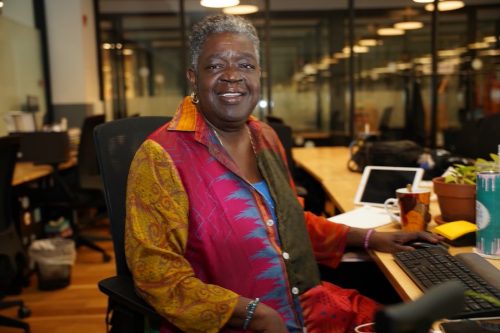
Tinnitus, a persistent auditory perception characterized by ringing sounds in the ears, is a common affliction among veterans, especially those who have experienced significant noise exposure during their military careers.
For many veterans, tinnitus can significantly impact their quality of life, leading to sleep disturbances, difficulty concentrating, and psychological distress. While conventional treatments such as medication and therapy can provide relief for some individuals, others decide to seek alternative therapies to manage their symptoms.
In this article, we will explore various alternative therapies that veterans can consider for tinnitus management, examining their effectiveness and potential benefits.
Managing Tinnitus with Alternative Therapies
Mindfulness-Based Stress Reduction (MBSR)
Mindfulness-based stress reduction (MBSR) is a technique that involves training individuals to cultivate mindfulness through meditation and awareness exercises. Research suggests that MBSR can help individuals with tinnitus develop coping strategies to reduce the perceived severity of their symptoms.
By increasing awareness of the present moment and fostering acceptance of tinnitus-related sensations, MBSR may alleviate the emotional distress associated with the condition.
Veterans can access MBSR programs through specialized clinics, online courses, or mobile applications, making it a convenient and accessible option for tinnitus management.
Acupuncture
Acupuncture, a traditional Chinese medicine practice involving the insertion of thin needles into specific points on the body, has gained attention as a potential treatment for tinnitus.
While the mechanisms underlying its effectiveness remain unclear, some studies suggest that acupuncture may modulate neural activity and improve blood flow to the auditory system, thereby reducing tinnitus symptoms.
Veterans interested in acupuncture can seek treatment from licensed acupuncturists who have experience working with individuals with tinnitus.
While research on acupuncture for tinnitus is still limited, anecdotal evidence and preliminary studies indicate that it may offer some relief for certain individuals.
Sound Therapy
Sound therapy involves the use of external noises, such as white noise, nature sounds, or customized soundscapes, to mask or distract from tinnitus-related sounds.
By providing a background noise that blends with or covers up the perceived ringing or buzzing, sound therapy can help individuals with tinnitus habituate to their symptoms and reduce their perception of severity.
Portable sound therapy devices, smartphone apps, and specialized hearing aids equipped with sound masking features are among the options available to veterans seeking sound therapy for tinnitus management.
Additionally, cognitive behavioral therapy (CBT) techniques can be integrated with sound therapy to address negative thought patterns and emotional reactions associated with tinnitus.
Herbal Supplements
Some veterans may explore the use of herbal supplements and vitamins as complementary treatments for tinnitus. Commonly cited supplements include ginkgo biloba, zinc, magnesium, and vitamin B12, which are believed to support auditory function and circulation in the inner ear.
While research on the efficacy of herbal supplements for tinnitus is mixed, some individuals report subjective improvements in their symptoms with regular supplementation.
Veterans interested in trying herbal remedies should consult with healthcare professionals to ensure their safety and discuss potential interactions with medications or existing health conditions.
Hyperbaric Oxygen Therapy (HBOT)
Hyperbaric oxygen therapy (HBOT) involves breathing pure oxygen in a pressurized chamber, which is believed to promote tissue healing and reduce inflammation.
Some studies have explored the use of HBOT for tinnitus management, hypothesizing that increased oxygen delivery to the inner ear may improve auditory function and alleviate symptoms.
While research findings on HBOT for tinnitus are inconclusive, some veterans may consider it as part of a comprehensive treatment approach.
It’s essential to note that HBOT should only be administered under the supervision of trained healthcare professionals in specialized clinics or medical facilities.
VA Benefits for Tinnitus
The Department of Veterans Affairs acknowledges tinnitus as a service-connected disability for veterans. To file a VA claim for tinnitus, veterans must provide evidence linking their tinnitus to their military service and demonstrating its impact on daily life.
This includes medical records, lay statements detailing symptoms, and any service-related noise exposure documentation.
The VA may conduct a compensation and pension (C&P) examination to assess the severity of the tinnitus. If the condition is deemed service-connected, veterans may be eligible for disability compensation based on its impact. Assistance from Veterans Service Organizations (VSOs) or an accredited VA claims consultant can aid veterans in navigating the claims process.
Overall, the VA provides support and compensation for veterans with tinnitus, recognizing its effects on their well-being. By understanding the claims process and seeking available benefits, veterans can receive assistance in managing their tinnitus and improving their quality of life.
Conclusion
Tinnitus can pose significant challenges for veterans, impacting various aspects of their daily lives. While conventional treatments play a crucial role in managing tinnitus symptoms, alternative therapies offer additional options for veterans seeking relief.
From mindfulness-based stress reduction and acupuncture to sound therapy, herbal supplements, and hyperbaric oxygen therapy, there are multiple approaches that veterans can explore in collaboration with healthcare professionals.
It’s essential for veterans to consider their individual preferences, needs, and medical history when evaluating alternative therapies for tinnitus management.
By adopting a holistic approach that addresses both the physical and emotional aspects of tinnitus, veterans can improve their overall well-being and quality of life.
Photo credit: Source.
- How To Choose The Right Corporate Travel Management Provider For Your Business?
- How Having A Dog Can Enhance Your Overall Mental Health
- 10 Tips To Maximize Your Air Conditioner’s Efficiency
- New Gear For Fall On The Rise For You And Your Harlem Home
- NYIC Launches ‘New York Proud’ Public Art Campaign Celebrating Immigrant Stories Across NYC
Become a Harlem Insider!
By submitting this form, you are consenting to receive marketing emails from: Harlem World Magazine, 2521 1/2 west 42nd street, Los Angeles, CA, 90008, https://www.harlemworldmagazine.com. You can revoke your consent to receive emails at any time by using the SafeUnsubscribe® link, found at the bottom of every email. Emails are serviced by Constant Contact








